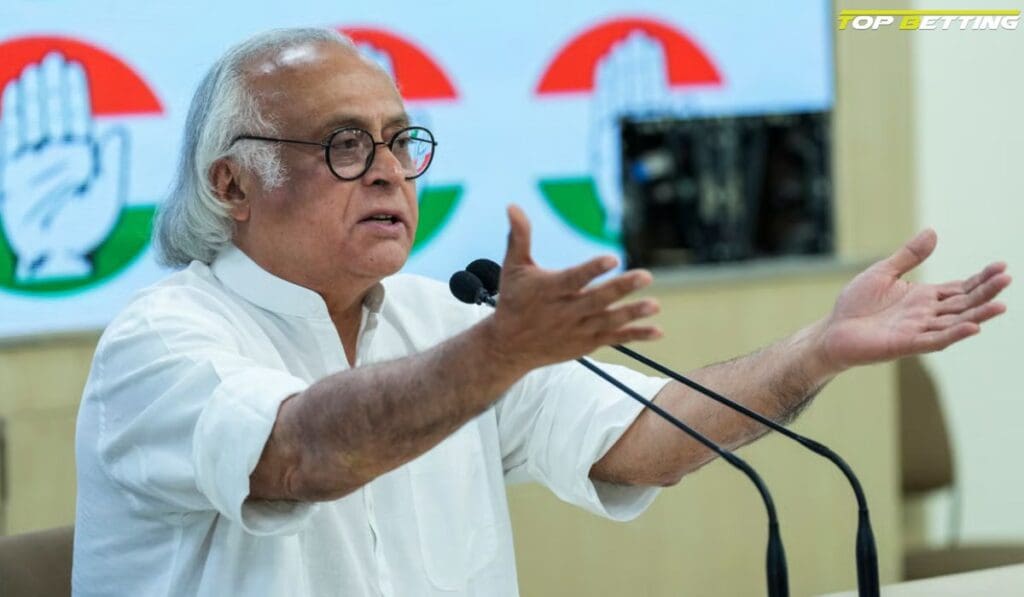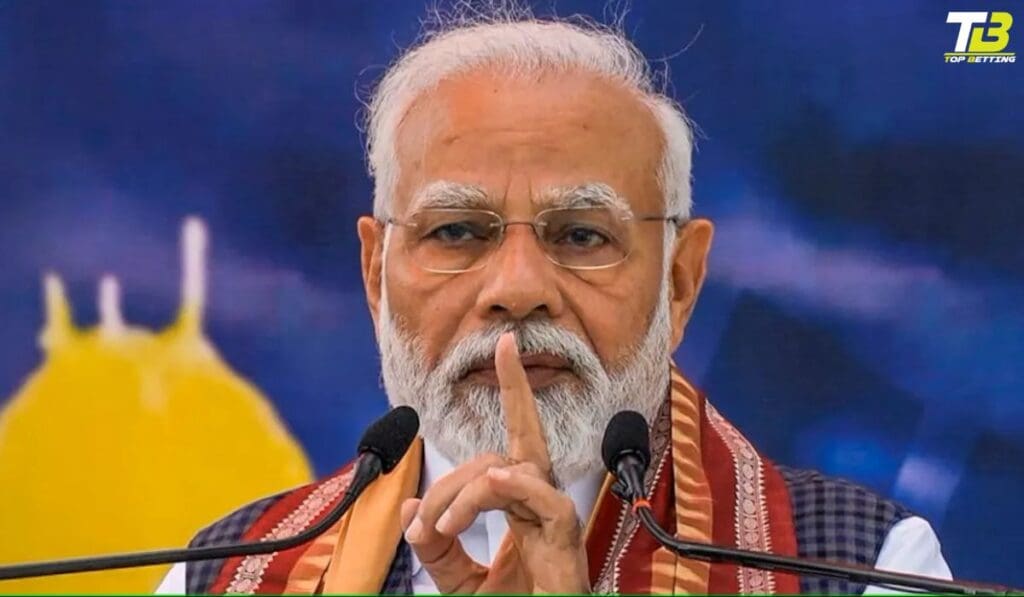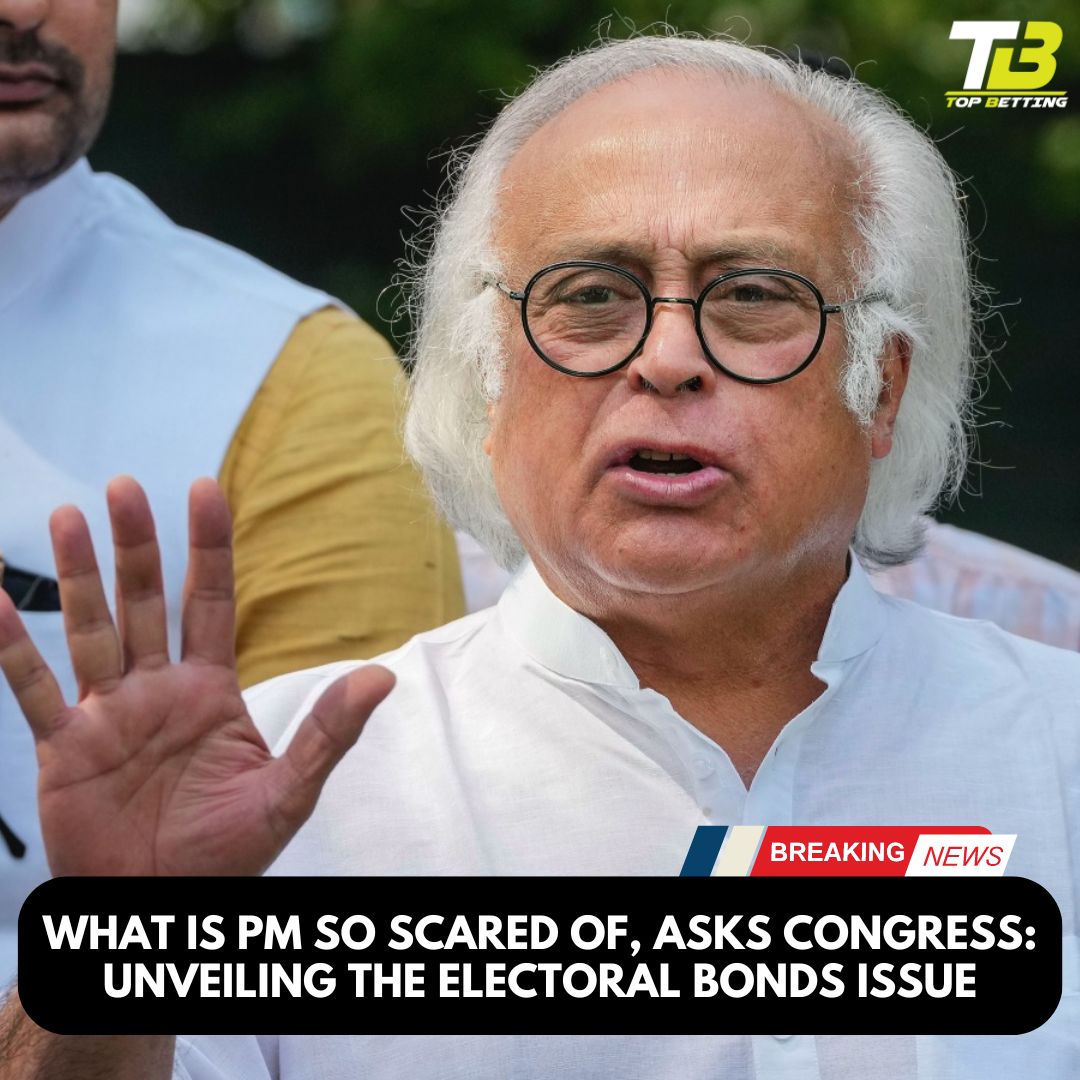
What is PM so scared of asks Congress |Electoral Bonds Issue
Introduction
The issue of electoral bonds has once again taken center stage in Indian politics, with the Congress party launching a scathing attack on Prime Minister Narendra Modi and his government. The Congress alleges that the government, through the State Bank of India (SBI), has consistently attempted to impede or delay the disclosure of donor details, including the amounts donated and the political parties that received them. This controversy raises questions about transparency, accountability, and the influence of money in Indian politics.
The Supreme Court Verdict and Allegations
The Congress party’s general secretary in charge of communications, Jairam Ramesh, has been at the forefront of the attack on the Modi government. He highlights the Supreme Court’s verdict on February 15, 2024, which declared electoral bonds as unconstitutional. Ramesh alleges that since this verdict, the Modi government has been actively trying to halt or delay the revelation of who donated how much ‘chanda’ (donation) to which political party.
Ramesh poses a critical question: What is the prime minister so scared of? He suggests that there might be a new scam hidden within the electoral bonds data that the government is trying to protect. To support his claims, Ramesh points out that on February 20, 2024, it was revealed that the Bharatiya Janata Party (BJP) received a massive bonanza of Rs. 335 crore in donations from 30 companies. Interestingly, these donations came immediately after the companies were raided or investigated by enforcement agencies such as the Enforcement Directorate (ED), Central Bureau of Investigation (CBI), or Income Tax (IT) department.
Intimidation and Coercion: Allegations Against the BJP
Ramesh goes a step further and questions whether the BJP has been intimidating these companies by leveraging the threat of investigations to extort donations from them. The timing of the donations raises suspicions and prompts Ramesh to seek answers. He asks why these firms donated to the BJP right after being raided. The insinuation is that there might be a quid pro quo arrangement between the BJP and these companies.
The Congress party’s attack on the government comes in the wake of the State Bank of India (SBI) submitting details to the Election Commission regarding the entities that purchased the now-defunct electoral bonds and the political parties that received them. This submission was made in compliance with the Supreme Court’s order to provide transparency and information regarding the electoral bonds.
Delayed Framing of Rules and Questions of Democracy
Ramesh further criticizes the government’s delayed framing of rules for the Citizenship (Amendment) Act, 2019. According to parliamentary norms, rules for any Act should be framed within six months of its passage. However, it took the Modi government four years and three months to frame the rules for the Citizenship Amendment Act. Ramesh questions the timing of these rules, which conveniently came out just before the Lok Sabha election.
The smooth functioning of democratic institutions is crucial for a government, but Ramesh points out a concerning fact. Despite the upcoming Lok Sabha elections, India currently has only one serving Election Commissioner instead of the required three. This raises questions about the state of democracy in the country and the abrupt resignation of Election Commissioner Arun Goel.
Jairam Ramesh, the in-charge communications general secretary for the Congress, stated that it is “surprisingly” that the prime minister is based in fresh Delhi on Wednesday and isn’t touring the nation for fresh “inaugurations,” rebranding, or taking credit for previous work.

Congress Party’s Frozen Bank Accounts and Anonymous Corporate Donations
Ramesh highlights what he sees as a glaring discrepancy. While the Congress party’s bank accounts, funded by ordinary Indians, have been frozen, there is over Rs. 6,000 crore in anonymous corporate money given to the BJP through the unconstitutional electoral bonds scam. Ramesh questions why the Congress party is facing such financial restrictions while the BJP benefits from this unaccounted corporate funding. He urges Prime Minister Modi to break his silence on these issues and address the concerns raised by the Congress party.

Conclusion
The electoral bonds issue has become a contentious topic in Indian politics, with the Congress party accusing the Modi government of attempting to conceal the identity of donors and their donations. The allegations of intimidation, coercion, and the use of enforcement agencies to extort donations have further fueled the controversy. The delayed framing of rules and the state of democratic institutions also raise concerns about the functioning of the government. As the political landscape continues to evolve, it remains to be seen how the Modi government responds to these allegations and addresses the demands for transparency and accountability in the electoral process.
The electoral bonds scheme was introduced in 2018 by the Modi government to enable individuals and corporates to make anonymous donations to political parties. These bonds can be purchased from designated banks and can be redeemed by political parties within a specified period. Critics argue that this scheme undermines transparency and accountability in political funding.










